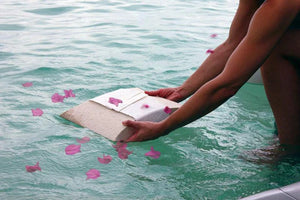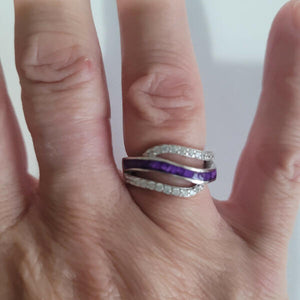Water Cremation - everything you need to know

Could water cremation be the next step towards a cleaner, greener, body disposal process? Many people believe so. However, there is still some uncertainty which is holding up the execution of the first UK water cremation.
What is water cremation?
As the name suggests, it is the transformation of a body into ash using water rather than the traditional flames. Not just water, however, heat and alkalies are also used in the process.
How does it work?
Water cremation uses the same method to reduce body tissues to a liquid state that occurs naturally after burial. The alkaline hydrolysis process begins by placing the body in water containing five-percent of potassium hydroxide at a temperature of 150-C. Three to four hours in the very hot solution reduces the body to ashes. At this point, any metal from implants or dentistry is now removed, just as with a flame cremation. Finally, the ashes, which are a pure white colour are given to the relatives. There is slightly more ash after a water cremation as none is lost up a chimney.
Who performs water cremations?
Sandy Sullivan, a Scot biochemist, is the inventor of the Resomation Unit. This is a compact, self-contained unit which carries out the complete process in a controlled manner. The Rowley Regis crematorium in the West Midlands is the first place in the UK to install a unit, and they are expecting to begin offering the service soon.
Why choose a water cremation?
They are a greener, more environmentally-friendly option. They use less than one-fifth of the energy of flame cremation and have a small environmental impact. A water cremation emits 35-percent fewer greenhouse gases than a traditional one, and it permits a more complete separation of bodily implants and dental amalgam for recycling. Also, it produces no airborne mercury emissions. Flame cremations are responsible for 16-percent of the total UK airborne mercury emissions.
Why is water cremation not yet available in the UK?
Many states in the USA and Canada already use the process. The British and Scottish Parliaments have not, as yet, ruled on the issue. However, legislation is not essential for water cremations to begin in the UK. Sandwell Council has planning permission to proceed and was set to perform the first water cremation in December 2017. However, opposition from Water UK and Severn Trent water has put things on hold. They expressed concerns about human remains being in the wastewater which returns to the water cycle. A Resomation spokesman claims that the water passes a complete purification process and does not contain any trace of human DNA.







